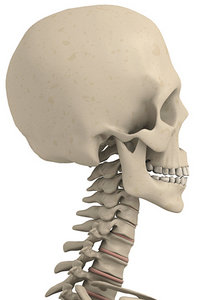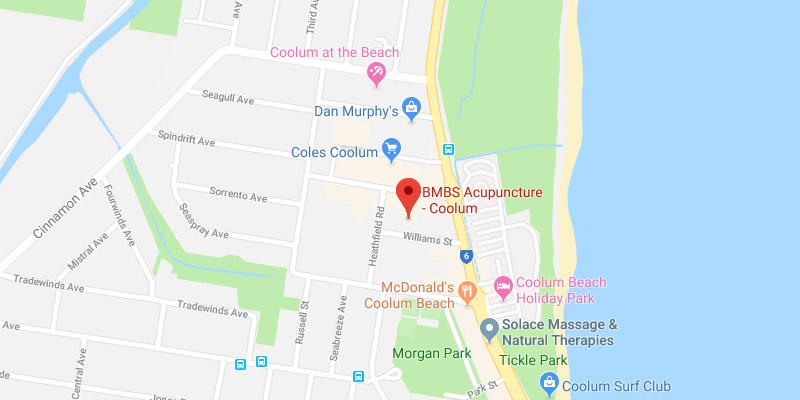The temporo-mandibular joint is an interesting and dynamic articulation that can cause a lot of problems. The TMJ is one of the most used joints in the body, as it opens and closes 1,500 to 2,000 times a day during its various motions of chewing, talking, swallowing, etc.
With modern lifestyle today, the TMJ doesnt just get used to chew our food, it also falls victim to the daily stress we all face. Whether we know it or not, we all hold back on speaking what we really feel numerous times a day – it may be to hold the peace, or to protect someones feelings, or it may be to protect your job if the boss is wrong. All of these instances and more neurologically pre-stimulate the tongue and mouth to start the formation of words to voice these thoughts, but then our reasoning and analytical part of the brain over ride the mouth, tongue and subsequently the jaw to keep those words from coming out; effectively jamming the mouth shut. Even general ‘busyness’ stress can cause the jaw to clench shut at anytime of the day; and especially the night when the brain is actively planning the next day, or filtering thoughts from the previous day… again especially when there’s something on your mind or the body is stressed out. This is commonly known as Teeth Clenching or Grinding…ask your partner if you grind your teeth, they could know as its possibly woken them in the past!
Over time the action of the jaw muscles ‘keeping the mouth shut’ or Clenching constantly due to Stress or an overworked Nervous System, can became increasingly tight. Now these TMJ muscles are very strong to start with (everyone knows how hard you can bite if you really want to!) and if they become shortened from contraction over a long period of time, even opening the mouth up wide can became an issue with it clicking and not tracking properly as you open. As the TMJ muscles get tighter, the surrounding muscles in the head become tighter, which then enlists the help of the Neck muscles – before long, a long chain of spasming muscles compensating for the initial jaw tension spread down the neck, through the shoulders and Back and even into the Hips. 
The indirect effects TMJ dysfunction can have, doesnt stop at the muscular level either. It can strongly affect everything from Hormonal Levels to Digestion and Sleep patterns. For instance, when in spasm the TMJ (joint just infront of your ear) can cause tension throughout the whole skull. The effect of this can create imbalance in any or all bones comprising the skull; one thats commonly affected is the Sphenoid Bone. This Bone surrounds the Pituitary Gland (your Hormonal Control Tower) on either side of the head – if any pressure, from an imbalanced sphenoid bone, pushes fluid and tissue onto any portion of the Pituitary Gland, its functions can change – leading to a change in Hormonal regulation throughout the entire system, potentially including the Endocrine System as well. This is just one example of many indirect influences a dysfunctional TMJ can have on the entire body.
To test if you have obvious TMJ issues, normally you should be able to open your mouth wide enough so that you can insert three fingers between the incisors (vampire fangs). Placing the index fingers into the auditory canal will also allow you to feel the motion of the joint. Passive or relaxed motion can be tested by placing the fingers on the lower incisors and pushing the mouth open (gently) as far as possible without causing pain. Limitations, Pain or abnormalities in movement of the Jaw may be due to dysfunction including but not necessarily RA (Rheumatoid Arthritis), congenital anomalies, ankylosis, TMJ osteoarthritis, or muscle spasm. Most of the time, as explained above, its due to a simple case of Muscle Spasm due to an overstimulated Nervous System, Stress and/or strong unspoken words.
The TMJ can quickly become a very complicated joint with many factors to consider. Not all TMJs are the same due to Kids wearing braces, auto accident/whiplash, and good old fashioned tension can all contribute. The biggest red flags we find in clinic that suggest TMJ issues may be present include:
- Any pain, ache or discomfort in the Jaw or Teeth when waking from sleep
- Neck and or Shoulder Pain – especially with large knotted lumps in the tops of the trapezius/shoulder
- General day to day stress where you feel constantly under pressure and never on top of things – chasing your tail all day!
- Restless Sleep
- Lingering tension between yourself and others over arguments or discussions left unresolved – especially when you constantly go over the situation in your mind
- Clicking or cracking in the jaw when opening and closing the mouth
- Feeling of the mouth not sitting straight when closed, or not tracking straight when opening and closing
- Under or overbite
At BMBS, we have many treatment strategies that may ease the physical TMJ issue itself, the ‘downstream’ symptoms it has also caused, as well the triggers causing the TMJ issue – these include Acupuncture, Chinese Medicine and Management strategies for the Triggers. If the Trigger can’t be removed (work, mental or physical abnormality in the Jaw) and management strategies aren’t an answer, the worst case scenario to help manage the TMJ and its affects is usually a treatment once a month. This may help remove the tension in the Jaw and relaxes the Nervous System, thus preventing the TMJ and its local as well as ‘downstream’ symptoms from ever returning.
If you have any questions regarding TMJ, a condition you think could be related to the TMJ, or even a condition unrelated to this article, please dont hesitate to contact us via phone or email. We are only too happy to help find the solution to your condition!








